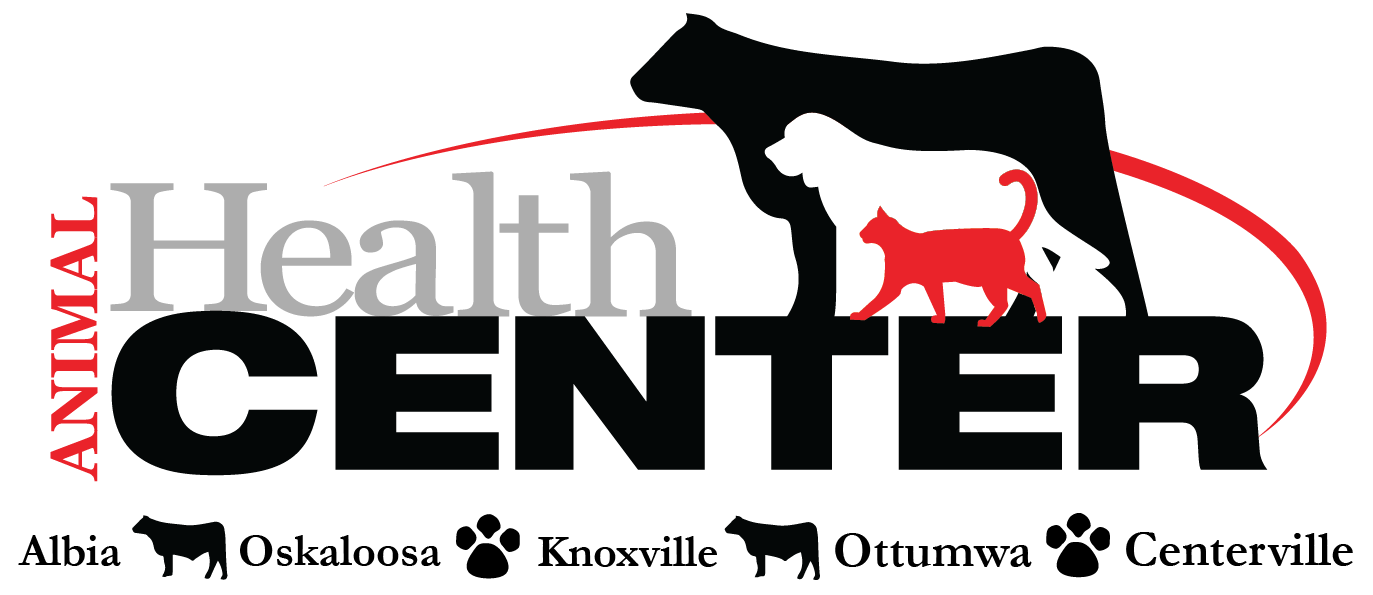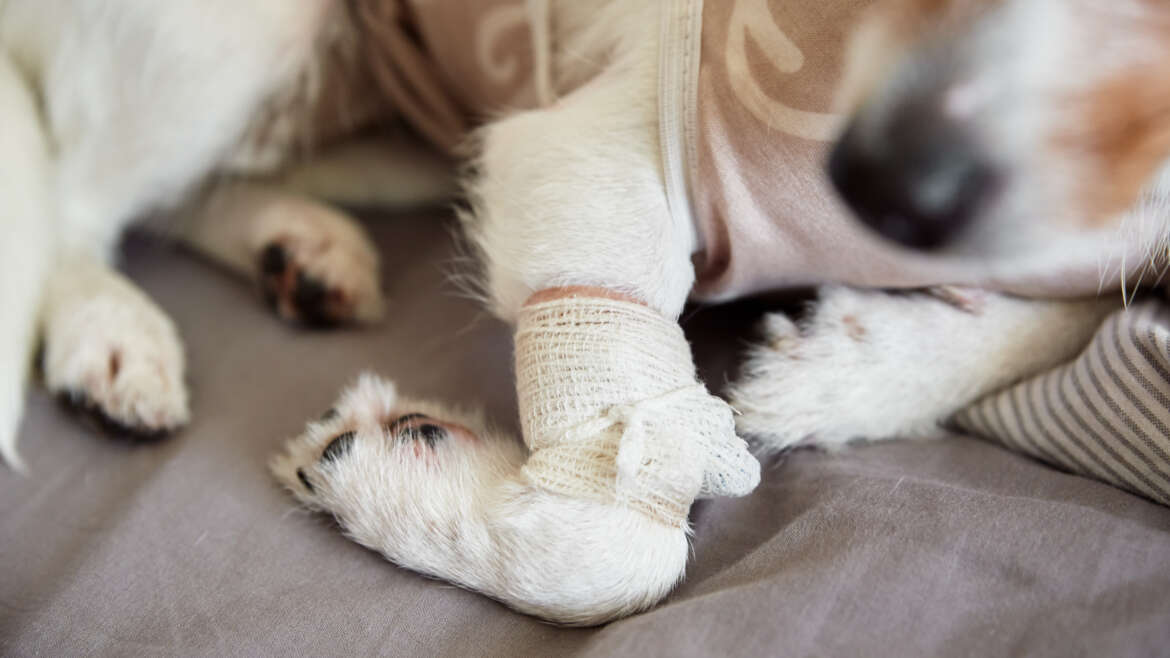Did you know that April is National Pet First Aid Awareness Month? Having lifesaving resources and skills on hand for your pet can make a difference in an emergency. We’ve highlighted a few common items you should keep in your pet’s first aid kit, recommended by the AVMA. Keep your kit in an accessible place, but in a spot out of reach of pets or young children.
Items to Include:
- Emergency phone numbers: Including your preferred Animal Health Center clinic’s phone number and the ASPCA pet poison control number ((888) 426-4435).
-
-
- Animal Health Center of Albia: 641-932-3455
- Animal Health Center of Centerville: 641-856-3227
- Animal Health Center of Knoxville: 641-828-2101
- Animal Health Center of Oskaloosa: 641-673-5525
- Animal Health Center of Ottumwa: 641-682-8701
-
-
- Pet’s medical records: Fold up a copy of your pet’s medications, vaccination history and any allergies they may have to include in your kit. In an emergency, it’s helpful to have this info on hand.
- Gauze, nonstick bandages, towels or strips of clean cloth: These items will come in handy to control bleeding and protect wounds.
- Adhesive tape for bandages: To secure gauze wrap or nonstick bandages. Do not use human adhesive bandages like Band-Aids on pets.
- Milk of Magnesia or Activated Charcoal: Used to absorb poison. ALWAYS contact your veterinarian or animal poison control before treating an animal for poison.
- Hydrogen Peroxide (3%): To induce vomiting. ALWAYS contact your veterinarian or animal poison control before treating an animal for poison.
- A digital thermometer: Be sure to find one that was made for pets or a specific “fever” thermometer. The temperature scale of regular thermometers doesn’t go high enough for pets. Note the temperature must be taken rectally.
- An eyedropper: To give oral treatments or to flush wounds.
- A muzzle: Even if your pet is not normally aggressive, they may lash out when afraid or in pain.
- A leash: To transport your pet if they are capable of walking.
- A Stretcher: To stabilize your pet and prevent further injury while transporting them to the vet. You can also use a door, board, blanket or floor mat in an emergency.
Be sure to browse our blog on Common Spring Household Items Poisonous to Pets to help prevent the need to use your pet’s first aid kit this season. Ask your Animal Health Center veterinarian for additional items to include in your first kit and for advice on other ways that you can be the most prepared for an emergency.



